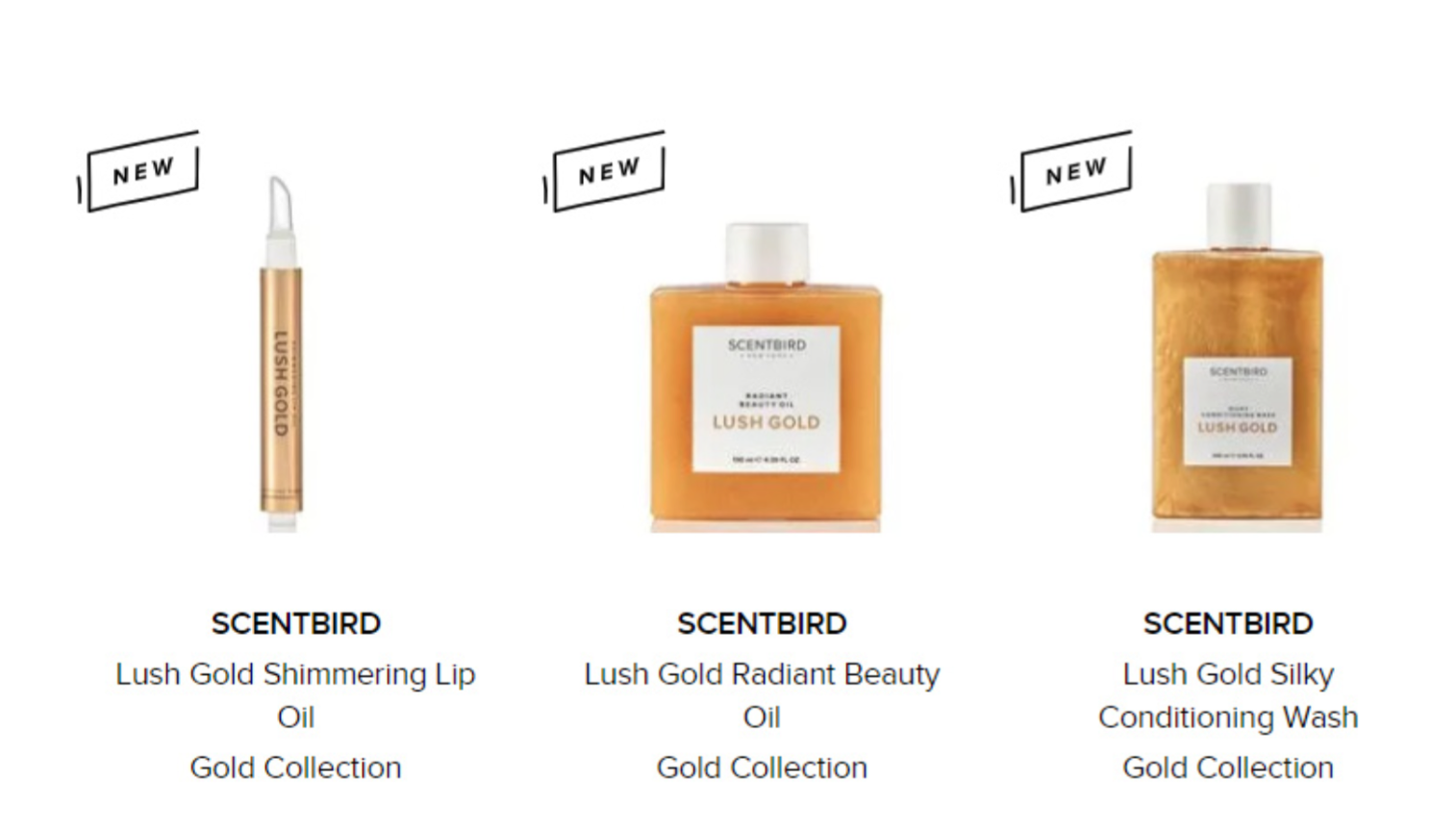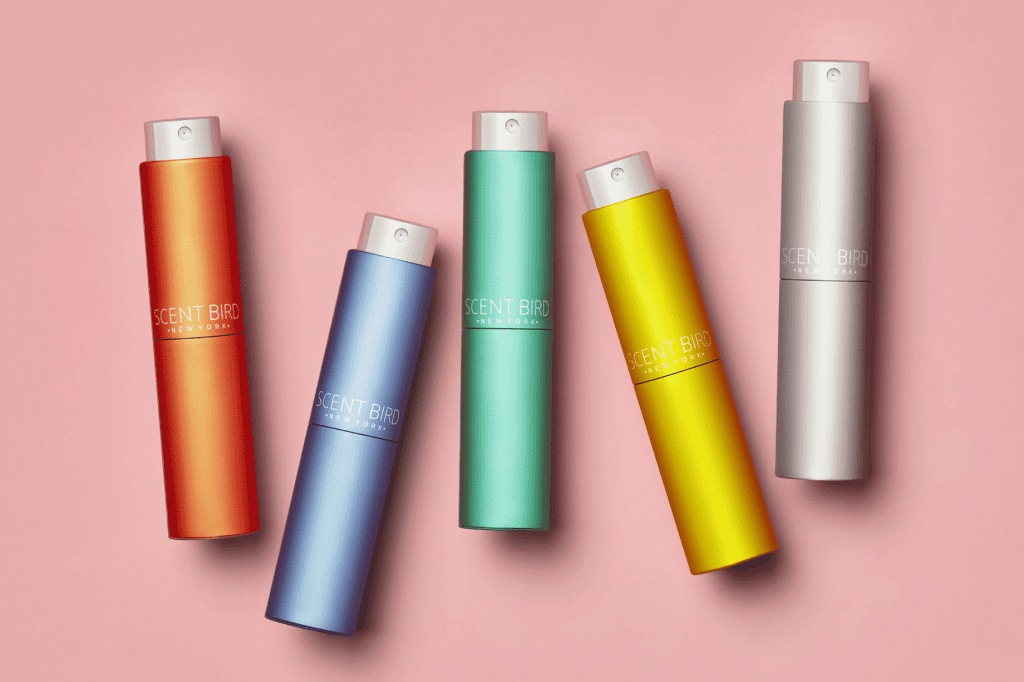Amazon is not the only company currently being sued over its private label endeavors. Scentbird is, too. Following a behind-the-scenes fight that has been developing over the past several months, the budding beauty and fragrance subscription service has been slapped with a strongly-worded lawsuit by beauty and skincare brand Lush, which alleges that the nearly 4-year old Scentbird is infringing its trademark “deliberately, willfully, intentionally, and in bad faith.”
According to Lush’s complaint, which was filed last week in a New York federal court, Scentbird got its start in 2014 by “offering subscription fragrance [and more recently, beauty product] plans whereby subscribers would receive monthly shipments” consisting of tester-size products from Versace, Gucci, Burberry, DKNY, Calvin Klein, and Dolce & Gabbana, among others.
While the two companies coexisted peacefully for several years, Lush – which describes itself as “one of the world’s premier suppliers of bath, hair care, skin care, and beauty products” – argues that things began to go south when Scentbird began expanding by way of a private label bath and body capsule collection, including, a body wash, a body oil, and a lip oil that uses the “Lush Gold” name.
Lush asserts in its complaint that prior to the “Lush Gold” capsule being released, its counsel alerted Scentbird of its rights in the “Lush” trademark and of its concerns that Scentbird’s use of a “confusingly similar” mark in conjunction with its practice of stocking of third-party fragrance and beauty products would likely confuse consumers about as the source of the “Lush Gold” products. In particular, Lush feared that consumers would likely believe that the “Lush Gold” products were either produced in collaboration with or are otherwise affiliated with or approved by Lush, which is not the case.
 Scentbird’s Lush Gold line
Scentbird’s Lush Gold line
Scentbird did not respond to Lush’s correspondence and instead, Lush asserts, released the “Lush Gold” collection with “full knowledge and in conscious disregard of [Lush’s] intellectual property rights,” thereby giving rise to claims of trademark infringement, unfair competition, and deceptive trade practices.
Shortly after Scentbird began offering the “Lush Gold” products on its website, Lush sent a second letter dated November 10, 2018, reiterating its trademark-centric qualms, and demanding that Scentbird cease use of the “Lush” trademark.
In response to that letter, Scentbird “took the position that it is not using ‘Lush Gold’ as a trademark,” and therefore, not running afoul of the law.
To be exact, Scentbird argued that it is not using the word “Lush” as a designation of the source of the products, such as how Nike uses a swoosh on the side of sneakers to indicate that they are Nike sneakers or how many Gucci bags bear an interlocking “G” logo, thereby alerting consumers that it is a Gucci bag. Instead, it says that it is using the term “Lush” as a descriptive term or name for the products, themselves, not as a the name of a brand.
This distinction matters because in order for an alleged infringer’s use of another’s trademark to actually be deemed to be infringing, the alleged infringer must be using the term as a trademark – i.e., in manner intended to alert consumers of the source or brand behind the product – and not merely to describe a product.
With that in mind, Scentbird argues that it is not engaging in infringement and has “refused [Lush’s] requests to cease use of the ‘Lush’ mark within a commercially reasonable timeframe.”
And Lush is not buying it. It claims that despite Scentbird’s allegations, “the risk of confusion here vis-à-vis the parties’ uses of the ‘Lush’ mark is especially acute,” and it is being damaged severely by Scentbird’s unauthorized use not only because of the confusion but because of the fact that “customers are not fully satisfied with its ‘Lush Gold’ products.”
Lush points to “recent product reviews posted on Scentbird’s website,” which take issue with the quality of the “Lush Gold” line, including asserting that consumers “might be disappointed” with the goods and that the lip balm “doesn’t last long and the taste/flavor is unappealing.” More than that, Lush cites the “F” rating that “the Better Business Bureau® has given Scentbird” thanks to “a total of 109 customer reviews averaging to just one star out of five, and with over 500 customer complaints in the last year, alone.”
As a result of this culmination of factors, including Scentbird’s continued “disregard for [Lush’s] property rights and goodwill,” Lush has asked the court to immediately and permanently bar Scentbird from such “unauthorized use” of the “Lush” mark, including by “modifying all packaging and promotional materials to eliminate the Lush and/or Lush Gold marks,” and to pay up for “all damages [Lush] sustains as a result of Scentbird’s infringement and unfair competition.”
A rep for Scentbird told TFL, “The Scentbird Lush Gold Collection, which launched in October of 2018, was developed as a limited edition bath and body line for monthly subscribers. We did not infringe on a current brand or product while in development, and we continue to stand by that belief.”
“In reference to the LUSH brand, we understand their concern, the rep further noted, “although we don’t agree, out of respect for them, we hope to resolve the issue as quickly as possible.”
UPDATED (Apr 18, 2019): Lush filed to voluntarily dismiss its claims, suggesting that the parties managed to come to a settlement outside of court.
*The case is Cosmetic Warriors Limited v. Scentbird, Inc., 1:19-cv-01137 (SDNY).













